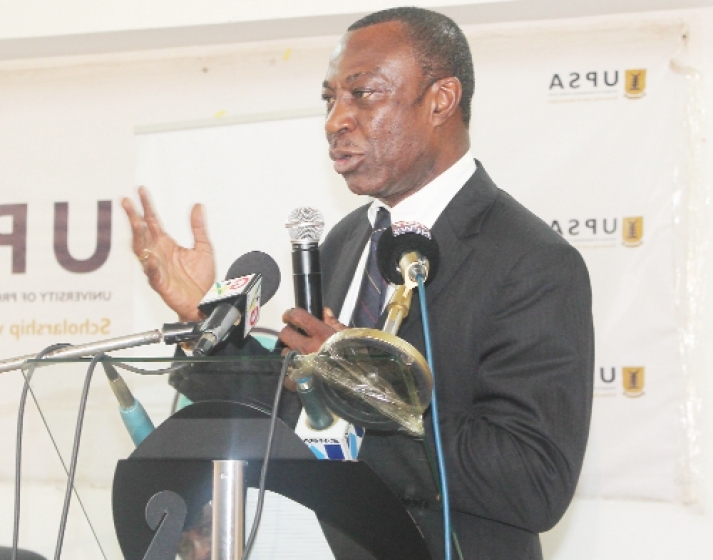
The Ranking Member of Parliament on Finance, Dr Anthony Akoto Osei, has described the 2015 budget of the country as “dead on arrival”.
He said before the finance minister presented the budget to Parliament for discussions, it was clear that the estimated revenue for the year would not be met.
He was speaking at a public lecture on the 2015 budget, organised by the Centre for Public Accountability of the University of Professional Studies, Accra (UPSA) last Thursday.
The lecture was to create a platform for the Chairman of the Finance Committee of Parliament, Mr James Avedzi, and the Ranking Member, Dr Anthony Akoto Osei, to educate the audience, especially the students, on the 2015 budget.
Challenges of budget
Dr Osei explained that his description of the budget was not based on the fact that he was an opposition member, but that there were three major things, among others, that made it clear that the budget would run into trouble.
He identified those challenges as the current energy crisis, increase in the minimum wage and the drastic fall in the price of crude oil on the international market.
Dr Osei said, for instance, that the budget was silent on how much was needed to address the current energy crisis, adding that the government owed the Electricity Company of Ghana (ECG) and the Volta River Authority (VRA).
He expressed the belief that it was important for the government to tell Ghanaians the truth of the energy crisis so that people would appreciate the problem and help find a solution to it.
In addition, he said, the increase in the minimum wage after the budget had been read meant that extra funds would be needed to address that issue.
About the crude oil, Dr Osei said the earned budget was prepared based on $99 per barrel, “but now the barrel is selling at $50, which is about half of the estimated amount”.
“We estimated $1.2 billion to be from oil, basing it on $99 per barrel in the budget,” he said, adding that all those were clear indications of what he meant by “dead on arrival”.
The budget
Contributing his quota, Mr Avedzi took the audience through how a national budget was prepared and the procedure it followed before it was laid before Parliament. He explained that for a budget to be approved, it had to be brought before Parliament in the form of a bill for scrutinity and until the bill was brought to Parliament, “we, as parliamentarians, have no role to play in it”.
The Finance Committee Chairman said the 2015 budget was estimated to mobilise GH¢36 billion, while the government would spend GH¢44 billion, and explained that it was the reason the government, from time to time, borrowed money to be able to meet the shortfall.
Mr Avedzi said the problem in the country was basically because “we politicise every issue and until we depoliticise national issues, we, as a nation, will continue to suffer”.
Importance of budget
The Director of the Centre for Public Accountability, Mr Albert Kan-Dapaah, who welcomed the audience, urged Ghanaians to be interested in the budget from its preparation to the audited report.
He said the budget was a useful document as it promoted good behaviour on the part of public servants and politicians.
Mr Kan-Dapaah, a former Chairman of the Public Accounts Committee of Parliament, said the concept of budget was beautiful because it had checks and balances on the government to ensure accountability.
Source: graphic.com.gh




